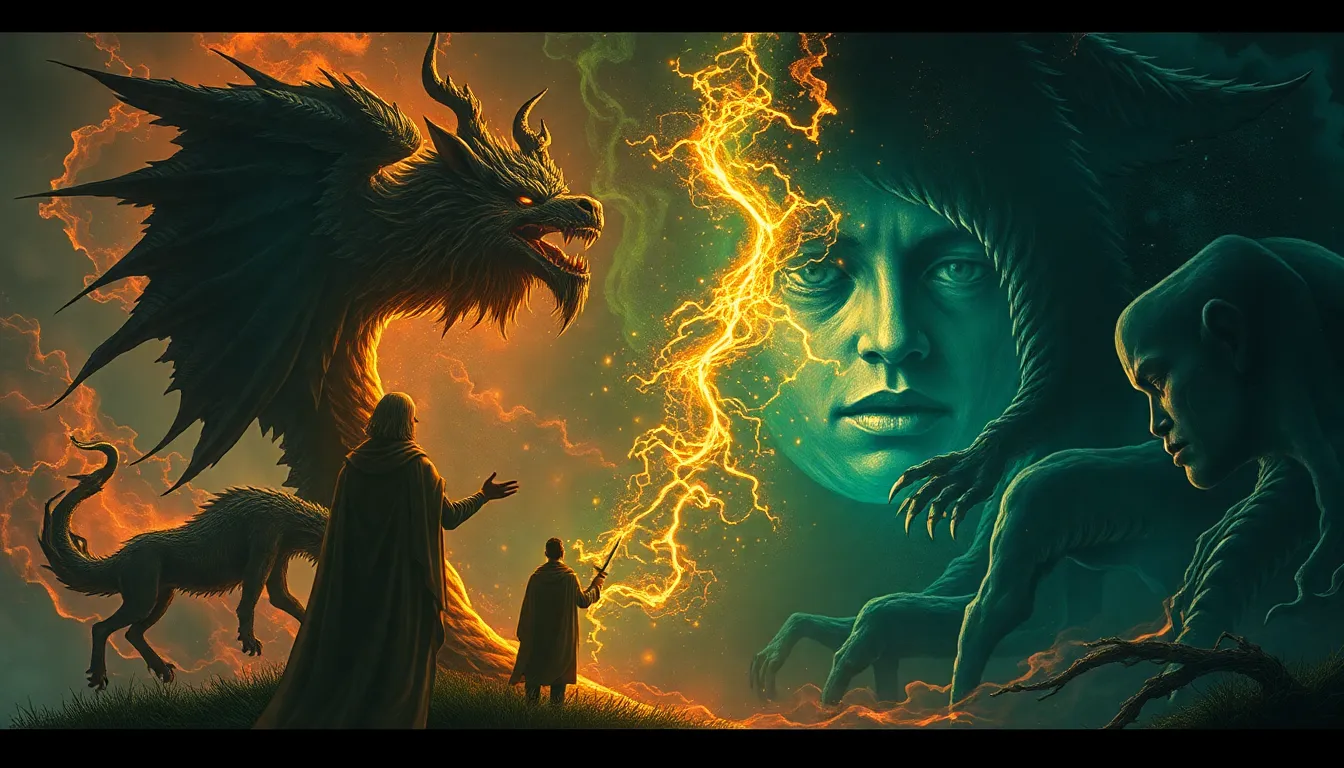Moral Myths That Challenge Authority: Lessons from Legends
I. Introduction
Moral myths are narratives that convey ethical truths and values, often transcending cultural boundaries and historical epochs. They serve as a mirror reflecting the complexities of human behavior and societal norms. By exploring these narratives, we can uncover the underlying principles that guide our moral compass and understand the significance of challenging authority.
Legends and myths have played a pivotal role in shaping moral perspectives throughout history. They not only entertain but also educate, offering insights into the human condition and the struggles between individual conscience and societal norms. This article aims to explore various moral myths that confront authority, highlighting the lessons they impart and their relevance in contemporary society.
II. The Nature of Authority
Authority can be understood as the power or right to give orders, make decisions, and enforce obedience. In societal contexts, authority manifests in various forms, including political, religious, and social structures. The nature of authority has been a subject of philosophical debate, often viewed through different lenses throughout history.
Historically, figures such as philosophers, theologians, and revolutionaries have examined the relationship between authority and moral obligation. The tension between obeying authority and following one’s conscience raises important questions about ethical behavior and individual rights.
This struggle is especially relevant in scenarios where personal morals clash with imposed authority, leading to profound societal implications.
III. The Role of Myths in Society
Myths serve as cultural narratives that encapsulate the beliefs, values, and experiences of a society. They provide frameworks for understanding complex moral dilemmas and often reflect the collective psyche of a community.
The psychological impact of myths is significant; they influence moral decision-making by shaping our perceptions of right and wrong. Through storytelling, myths can evoke empathy and inspire action, serving as powerful tools for social critique and change.
- Myths can challenge prevailing social norms.
- They can foster a sense of identity and belonging.
- Myths often encourage critical reflection on authority and power structures.
IV. Case Study 1: Prometheus – The Titan of Defiance
The myth of Prometheus tells the story of a Titan who defied Zeus by stealing fire from the gods and giving it to humanity. This act of rebellion symbolizes the quest for knowledge and the pursuit of enlightenment.
Prometheus’s defiance against divine authority raises themes of rebellion, sacrifice, and the value of knowledge. His punishment—being bound to a rock where an eagle would eat his liver daily—serves as a stark reminder of the consequences faced by those who challenge the status quo.
The lessons learned from Prometheus emphasize the importance of knowledge and the willingness to sacrifice for the greater good, highlighting the moral imperative to question authority when it conflicts with human progress.
V. Case Study 2: Robin Hood – The Outlaw with a Cause
Robin Hood is a legendary figure known for “robbing from the rich and giving to the poor.” This narrative places him at the intersection of social justice and moral rebellion against corrupt authority.
Examining the social justice themes in Robin Hood’s story reveals a critique of wealth disparity and the failures of authority to protect the vulnerable. His actions challenge the moral authority of the ruling class and resonate with contemporary movements advocating for economic justice.
- Robin Hood embodies the struggle against inequality.
- He represents the idea that authority is not always synonymous with justice.
- His legacy inspires modern discussions on wealth redistribution.
VI. Case Study 3: Antigone – The Tragic Heroine
Antigone, the daughter of Oedipus, is a tragic figure in Greek mythology who defied King Creon’s decree by burying her brother Polyneices. Her story presents a profound moral conflict between personal duty and state law.
The clash between Antigone’s unwavering commitment to familial loyalty and Creon’s insistence on law and order highlights the complexities of moral obligation. Her tragic fate serves as a powerful testament to the consequences of civil disobedience.
Antigone’s story provides insights into the nature of moral duty, emphasizing that sometimes the highest moral ground lies in challenging unjust authority.
VII. Case Study 4: The Boy Who Cried Wolf – Consequences of Authority and Credibility
The fable of “The Boy Who Cried Wolf” illustrates the relationship between truth, authority, and trust. In the story, a shepherd boy repeatedly deceives villagers by falsely claiming a wolf is attacking his flock. When a wolf finally appears, no one believes him, leading to disastrous consequences.
This fable underscores the importance of honesty and accountability, illustrating how repeated dishonesty erodes trust in authority. The moral lessons drawn from this tale remind us that credibility is foundational to effective leadership and the maintenance of social order.
VIII. Contemporary Relevance of Moral Myths
The legends explored in this article resonate deeply within today’s society, reflecting ongoing struggles against various forms of authority. Social media has amplified voices challenging established norms, transforming moral narratives into rallying cries for change.
Modern movements inspired by these moral lessons—such as Black Lives Matter and climate activism—demonstrate how legends like Prometheus, Robin Hood, and Antigone continue to inspire individuals to question authority and advocate for justice.
IX. Critiques of Moral Myths
While moral myths hold significant value, romanticizing rebellion can lead to potential dangers. Misinterpretations of these lessons can result in justifying irresponsible or harmful actions in contemporary contexts. The need for critical thinking when applying these moral lessons is paramount.
- Understanding the context of each myth is crucial.
- Oversimplifying moral lessons can lead to misguided actions.
- Critical engagement with these narratives ensures responsible application of their teachings.
X. Conclusion
In conclusion, moral myths serve as powerful narratives that challenge authority and provoke critical reflection on ethical behavior. Through the stories of Prometheus, Robin Hood, Antigone, and others, we gain valuable insights into the nature of rebellion, justice, and moral duty. These legends not only illuminate the struggles of the past but also inspire contemporary movements advocating for change, reminding us that the pursuit of justice often requires courage in the face of authority.




